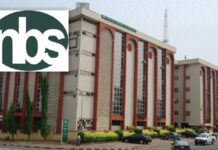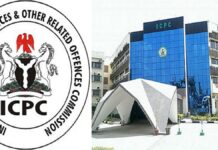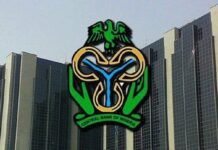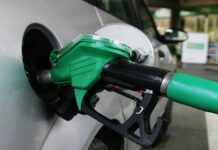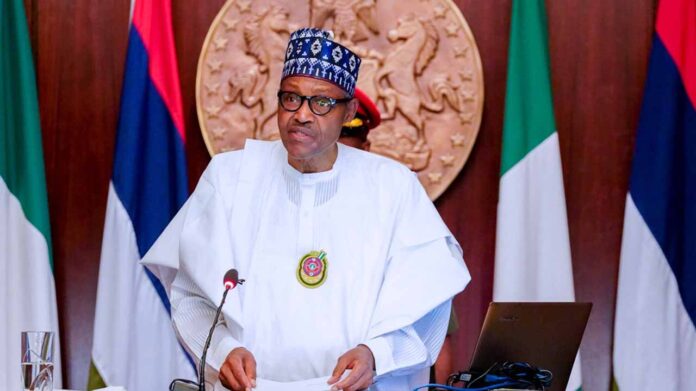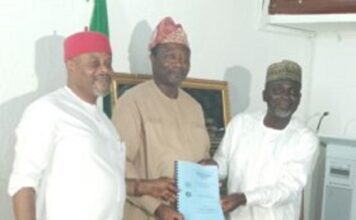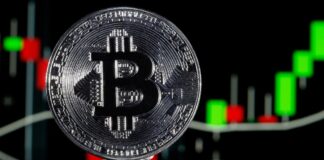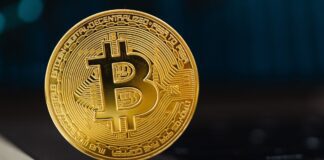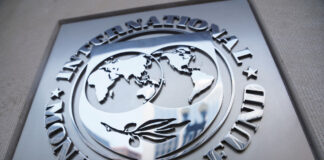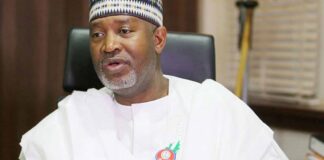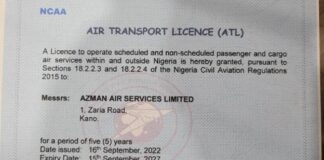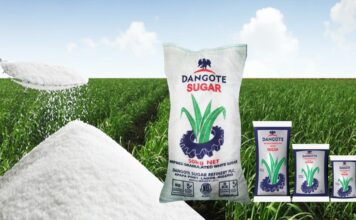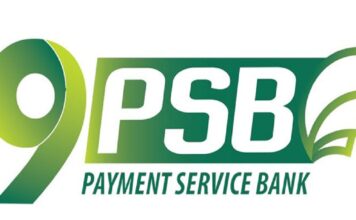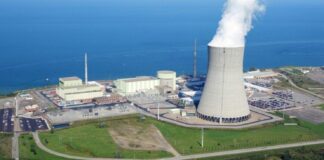Nigeria’s Total Public Debts Rise ₦19 trillion in 5years
· Gap between Nigeria’s Skyrocketing Debts, Infrastructure Bothers Nigerians
· FG may run into difficulty servicing foreign debts
· Actual external debt service payment April- June, 2020 printed ₦110 billion
· Devaluation of Naira to worsen Debt Service Cost
Following the addition of about ₦19 trillion in the last five years, the nation’s total public debts book has settled at ₦13.01 trillion, rising faster than level of capital expenditure to support the nation’s infrastructural development.
In servicing its external debt portion, between April and June, 2020 a total sum of $USD287.043 million was used.
This translates to about ₦108.879 billion between April and June (exactly 5 years into the new administration) if converted at the Central Bank of Nigeria‘s official exchange rate of ₦379 to a dollar.
Of this sum, 55% went to commercial creditors, 33% to multilateral organisations and remaining were split between bilateral and others category in 5% and 7% respectively.
Compare with Q2:2019, external debt servicing cost increased 13.8% year on year from $252.3 million reflecting multilateral and bilateral debt service obligations.
FG’s decision to continue to ramping up loan to finance capital expenditure without corresponding program to reflate revenue could lead into difficulty servicing foreign debt, an economist told MarketForces.
Recently, Nigeria finance hit iceberg such that there was a marginal difference between total revenues accrued to the nation and associated obligations to creditors.
To some industry’s observers, borrowing to finance capital projects that would support economic prosperity and development is not the issue, but clogs in the revenue sides.
To raise revenues accrue to government, experts have been advocating for some sorts of structural reforms.
While the Debt Management Office latest report showed that total public debt has expanded 8.31% to ₦13.1 trillion, debt cost declined.
Irrespective, Nigerians are exhuming anger, fear as there is wide gap between rising debts profile and the state of infrastructure in the country.
On the other side, Federal Government has stated it is using the loan – both domestic and external – to supports capital expenditure.
But a sizeable apolitical Nigerians think that government may however be borrowing to finance its recurrent expenditure, the notion that has been debunked by Nigerian leaders.
In its macroeconomic note, analysts at Cowry Asset Limited said a growing numbers of Nigerian are bother because of the disparity between rising debt profile and the state of infrastructure.
By DMO data, Nigeria’s total public debt stock for the second quarter of 2020 increased by 8.31% to ₦31.01 trillion as at June 2020.
Comparatively, this means that Nigeria’s total national debt stock skyrocketed by 155.85% to ₦31.01 trillion in June 2020 when compare with ₦12.12 trillion in June 2015.
In absolute term, this means that government has added a whopping sum of ₦18.89 trillion in the spate of five year, but capital projects seem to worth below the gargantuan amount.
The increase in debt profile as reported as against ₦28.63 trillion debt size as at March 2020 was supported by devaluation of the local currency, though FG received additional loan support from international creditors.
Providing additional insight, Cowry Asset Limited said in a macroeconomic note that the increase in the country’s total debt stock was chiefly due to a rise in external debt stock.
In the period, external debt stock increased 13.78% to ₦11.36 trillion (or USD31.48 billion at ₦361.00/USD) as at June 2020 from ₦9.99 trillion (or USD27.67 billion at ₦361.00/USD) in March 2020.
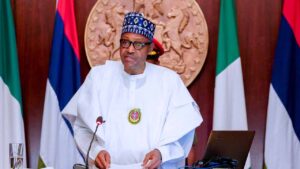

It would be recalled that amidst the outbreak of COVID-19, Nigeria received additional USD3.36 billion worth of loan from International Monetary Fund (IMF) in Q2.
Despite the increase in external debt stock, external debt service payments fell to ₦103.62 billion (or USD287.04 million) as at June 2020 from ₦170.60 billion (or USD472.57 million) as at March 2020.
Similarly, Cowry Asset explained that domestic debt stock increased by 5.39% to ₦19.65 trillion in June 2020 (from ₦18.64 trillion as at March 2020).
This occurred as the Federal Government of Nigeria (FGN) increased its regular and Sukuk bond issuances by ₦681.75 billion and ₦162.56 billion respectively within the period under review.
Further breakdown of the domestic debt figure showed that FG’s domestic debt stock rose to ₦15.46 trillion as at June 2020 (from ₦14.53 trillion as at March 2020).
Also, states’ debt increased slightly to ₦4.19 trillion (from ₦4.11 trillion).
At the domestic front, debt service payment plunged quarter on quarter by 48.65% to ₦312.81 billion in Q2 2020 from ₦609.13 billion in Q1 2020.
Analysts explained that declined recorded in local debt service was due to lower interest rate environment which has seen yields on government instruments nose-diving in the fixed income market.
Elsewhere, the era of subsidy payment on Premium Motor Spirit (PMS) by FG has now become a thing of the past as FG finally deregulated the downstream oil sector by opting out of price fixing, Cowry Asset remarked.
According to Petroleum Products Pricing Regulatory Agency (PPPRA), pump price of petrol will henceforth be determined by the forces of demand and supply as well as the cost of crude oil at the international market.
The Federal Government, through the PPPRA, had earlier embarked on partial deregulation or a petrol pricing regime in March 2020, in which it released – in about three months – guiding price bands of petrol pump price.
Amid the partial deregulation, the pump price was increased thrice till it eventually reached ₦158 – ₦160 per litre.
“Going forward, and moving from partial to full downstream oil sector deregulation, the oil marketers are now free to source for foreign currency to import PMS on their own and fix their prices”, Cowry Asset explained.
On the foreign scene, WTI crude plunged further week-on-week by 9.84% to USD37.30 a barrel given a 7.85% fall in US crude oil input to refineries to 12.78 mb/d as at Sept. 4, 2020
It tanked by 26.96 % from 17.49 mb/d printed in Sept 6, 2019.
Also, U.S. commercial crude oil inventories (excluding those in the Strategic Petroleum Reserve) rose w-o-w by 0.41% to 500.43 million barrels (and rose by 20.28% from 416.07 million barrels as at Sept. 6, 2019).
Similarly, Brent dipped further by 9.08% to USD40.06 a barrel while Bonny Light fell by 6.52% to USD39.26 a barrel as at Thursday, September 10, 2020.
“What bothers the mind the most about Nigeria’s rising debt stock is the disparity between the country’s poor infrastructural state and the jump in debt stock within the last five years”, Cowry Asset noted.
Total national debt stock ballooned by 155.85% to ₦31.01 trillion in June 2020, down from ₦12.12 trillion in June 2015 – adding a whopping sum of ₦18.89 trillion.
Read Also: Nigeria’s Trade Deficit Rises to ₦1.80 trillion in Q2:2020
“With the high pace at which the country amasses debt without a corresponding healthy growth in revenue, especially foreign earnings, it may run into difficulty servicing its foreign debt amid its over-reliance on crude oil revenue”, Cowry Asset stated.
Meanwhile, analysts anticipate an increase in petrol pump price in the short-term amid subsidy removal.
“However, with the completion of Dangote Refinery and accent to Petroleum Industry Bill, which could increase investments and competition in oil & gas, we expect the price to moderate in the medium to long-term”, Cowry Asset noted.
In its macroeconomic note, Afrinvest, a leading investment firm in Lagos said public exposure translates to a debt to GDP ratio of 20.4% based on 2020 GDP estimate, from 19.0% as at year-end 2019.
The strong increase in the public debt stock was driven by the devaluation of the official exchange rate from ₦306.00/$1.00 to ₦361.00/$1.00 as well as external and domestic borrowing used to plug the large fiscal deficit brought by the COVID-19 pandemic.
FG’s Budget support loan of ₦1.2 trillion ($3.4bn) was accessed from IMF’s Rapid Financing Instrument (RFI) in April 2020, which in addition to currency devaluation resulted in a 36.5% year on year and 13.8% quarter on quarter rise in external debt (FG & States) to ₦11.4tn ($31.4bn).
Overall, FG’s external debt stock increased 18.9% ($4.3bn) to $27.2 billion while the local currency value increased 40.1% year on year to ₦9.8 trillion.
Afrinvest noted that the external debt of States remain unchanged at $4.3 billion, the local currency value rose 17.5% year on year to ₦1.5 trillion.
It noted the 15.2% growth in FG’s domestic debt 15.2% and 6.9% quarter on quarter increased to ₦15.5 trillion as the DMO ramped up domestic borrowing to plug budget deficit given low yields in the fixed income market.
In terms of debt servicing, total payments in Q2:2020 rose 42.6% on a year on year basis to ₦416.4 billion, driven by both domestic and external debt.
Specifically, FG’s domestic debt servicing burden rose strongly by 45.6% to ₦312.8 billion from ₦214.8bn in the preceding year.
Similarly, external debt servicing cost increased 13.8% year on year to $287.0m from $252.3m in Q2:2019, reflecting multilateral and bilateral debt service obligations.
Given the devaluation of the official exchange rate, the increase in external debt service payments in local currency terms was stronger at 34.0% to ₦103.6 billion.
The increase in debt servicing burden suggests that FG’s debt service to revenue ratio would continue to worsen, especially given weak revenue growth and further currency devaluation to ₦381.00/$1.00 in Q3:2020.
“We highlight that the ratio increased to 72.2% as at May 2020 from 59.6% as at year-end 2019.
“This is unsurprising as our concerns about the devaluation impact of the aggressive binge in external loans since 2017 have been justified.
“We note that the share of external debt in total debt for the FG has now reached 38.9%, closer to the FG’s target of 40.0%”, Afrinvest stated.
The firm further said this should prevent the issuance of further external loans given the strong chance of further currency adjustments.
Notwithstanding, Afrinvest said it expects a sustained rise in the FG’s external debt stock given additional budget support of $2.1 billion yet to be disbursed by the World Bank, AfDB and the Islamic Development Bank.
“Looking forward, we expect more domestic debt issuances to bring down the share of external debt and lower devaluation risk.
“On a brighter note, we believe the removal of energy subsidies (electricity and petrol) could herald a new fiscal era which would ease FG’s expenditure burden, freeing up resources for investment in critical sectors”, Afrinvest noted.
Nigeria’s Total Public Debts Rise ₦19 trillion in 5 years
